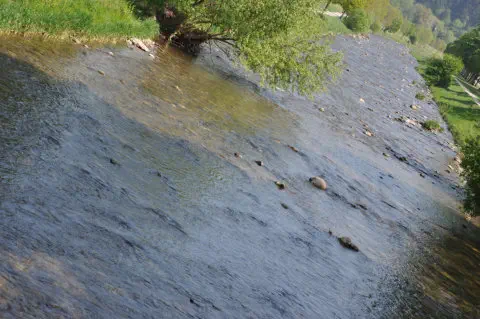A strong sense of justice is a quality often attributed to the highly sensitive and / or
gifted. Witnessing some unfairness can trigger strong, even compelling sensations and
emotions. But is it really a sense of justice?
Justice is something human-made, strongly tied to time and location. Laws define
what is just and what is not, but that is very relative. Neither are moral expectations
universally valid. What is legal or morally acceptable here and now may be illegal or
immoral just one country away or a year later.
Isn't human-made justice, being so tied to time and place, too relative and
sometimes too arbitrary to activate a "sense" involving physical and emotional
sensations? Justice itself is also a difficult concept when you get into the details: is
justice always just? Is revenge just? Is inequality unjust? Who has the one, final, clear
answer to these questions that makes sense without needing lengthy explanations laden
with words?
So this "sense" of justice might instead be connected to something deeper: to a
sense of balance. The focus on laws and moral rules of fairness may conceal deeper
balances beyond human-made "justice."
An analogy may be helpful. When the body is out of balance, it can fall. The body
notices this with its sense of balance and its "proprioception" (perception of its own
position and posture). It immediately triggers movement reflexes that restore balance.
You were just beginning to stumble. And within a fraction of a second, a leg has come
forward, positioned itself under your falling body and is now carrying it again. The
consciousness is too slow and has not been invited into the process at all. Only
afterwards does our consciousness understand what the body has already completed. It
can now provide eloquent comments on what happened. But the action is over.
The "sense of justice" would then actually be a kind of sense of balance, but not a
physical one. Perhaps it is activated when an imbalance occurs in the fabric of the
world. This would mean that behind this sense there is a deeper connection to the
world, to the many flows and interactions and networks and life energies that are
constantly traversing life and sometimes get out of step.
The interpersonal netting and the realms beyond require a delicate balance that is easily
disturbed.
•
For example, when someone behaves selfishly, he or she creates a disturbance in
the flow of things and values. The action of one is at the expense of the other. This is
an imbalance. It can trigger further events.
•
Or a child sees a dead animal in nature and is inconsolable and desperately wants to
bury it - as if some heartfelt natural order were to be restored.
•
Another child grows up in a dysfunctional family and tries to somewhat repair the
interpersonal fabric. It may do so by being overly cheerful (everybody‘s "little
sunshine"), by some serious disease, or by exhibiting behavioural problems. They
are various sidetracking strategies to draw attention away from the family divisions
and divert from the conflicts. The child has felt that something needs repair and
responds, but loses contact with itself in the process, since it has hooked its own
being and behaving to outside factors.
High sensitivity is primarily an environmental sensitivity. It perceives minimal changes in
the environment. And giftedness may include an increased cognitive acuity on the world,
providing a higher resolution picture of what is and what could come. The "sense of
justice," which in reality would be a "sense of balance," could feed on perceptions
of the environment on deeper levels. Something in the very fabric of the surrounding
world is hurt, perhaps barely perceptible to others. The subtle balances of the world
have been disturbed and the disturbance could expand and ferment if nothing is done.
That calls for the balance to be restored.
To stay with the first example: A small initial selfish action by one person may lead to
further actions and events and perhaps retaliations that build up to a split in the group.
The sense of balance, called the "sense of justice," provides a premonition of this
outcome. It communicates: Recapture this imbalance before it expands and does
further damage. And if that is not possible, at least try to mitigate the imbalance or its
outcome.
Considerations on the very nature of the world netting or world fabric the imbalance has
been created and stored in and is moving through are entirely up to the esteemed
reader. However, many highly sensitive and gifted people and others experience this
sense as downright compelling, sometimes painful. It may be that they play an
important role in keeping the fabric of the world in balance. Otherwise, it would
probably not signal itself to them so clearly and sometimes cause them such
discomfort. If this privileged connection exists, it may help explain why being in nature
can be so invigorating: nowhere else can we have such a sense of being part of
something of a far greater magnitude.
The question is whether they also act out of this perception to actually restore balance.
For perhaps they do indeed have a role of stewardship of the fabric the world is
made of.
See also:
•
Coaching for HSP - and what High Sensitivity is
•
Coaching for the highly gifted
•
Contact info: Ask your questions or make an appointment
•
Why this Coach Alexander Hohmann?
•
Blog & Articles
Phone +49 160 9623 2547

Alexander Hohmann - Blog
Coaching and More
E-Mail:
A strong sense of justice is a quality often
attributed to the highly sensitive and / or gifted.
Witnessing some unfairness can trigger strong,
even compelling sensations and emotions. But
is it really a sense of justice?
Justice is something human-made, strongly
tied to time and location. Laws define what is
just and what is not, but that is very relative.
Neither are moral expectations universally valid.
What is legal or morally acceptable here and
now may be illegal or immoral just one country
away or a year later.
Isn't human-made justice, being so tied to
time and place, too relative and sometimes
too arbitrary to activate a "sense" involving
physical and emotional sensations? Justice
itself is also a difficult concept when you get into
the details: is justice always just? Is revenge
just? Is inequality unjust? Who has the one,
final, clear answer to these questions that
makes sense without needing lengthy
explanations laden with words?
So this "sense" of justice might instead be
connected to something deeper: to a sense of
balance. The focus on laws and moral rules of
fairness may conceal deeper balances beyond
human-made "justice."
An analogy may be helpful. When the body is
out of balance, it can fall. The body notices
this with its sense of balance and its
"proprioception" (perception of its own position
and posture). It immediately triggers movement
reflexes that restore balance. You were just
beginning to stumble. And within a fraction of a
second, a leg has come forward, positioned
itself under your falling body and is now carrying
it again. The consciousness is too slow and has
not been invited into the process at all. Only
afterwards does our consciousness understand
what the body has already completed. It can
now provide eloquent comments on what
happened. But the action is over.
The "sense of justice" would then actually be
a kind of sense of balance, but not a physical
one. Perhaps it is activated when an
imbalance occurs in the fabric of the world.
This would mean that behind this sense there is
a deeper connection to the world, to the many
flows and interactions and networks and life
energies that are constantly traversing life and
sometimes get out of step.
The interpersonal netting and the realms beyond
require a delicate balance that is easily
disturbed.
•
For example, when someone behaves
selfishly, he or she creates a disturbance in
the flow of things and values. The action of
one is at the expense of the other. This is an
imbalance. It can trigger further events.
•
Or a child sees a dead animal in nature and
is inconsolable and desperately wants to
bury it - as if some heartfelt natural order
were to be restored.
•
Another child grows up in a dysfunctional
family and tries to somewhat repair the
interpersonal fabric. It may do so by being
overly cheerful (everybody‘s "little
sunshine"), by some serious disease, or by
exhibiting behavioural problems. They are
various sidetracking strategies to draw
attention away from the family divisions and
divert from the conflicts. The child has felt
that something needs repair and responds,
but loses contact with itself in the process,
since it has hooked its own being and
behaving to outside factors.
High sensitivity is primarily an environmental
sensitivity. It perceives minimal changes in the
environment. And giftedness may include an
increased cognitive acuity on the world,
providing a higher resolution picture of what is
and what could come. The "sense of justice,"
which in reality would be a "sense of
balance," could feed on perceptions of the
environment on deeper levels. Something in
the very fabric of the surrounding world is hurt,
perhaps barely perceptible to others. The subtle
balances of the world have been disturbed and
the disturbance could expand and ferment if
nothing is done. That calls for the balance to be
restored.
To stay with the first example: A small initial
selfish action by one person may lead to further
actions and events and perhaps retaliations that
build up to a split in the group.
The sense of balance, called the "sense of
justice," provides a premonition of this
outcome. It communicates: Recapture this
imbalance before it expands and does further
damage. And if that is not possible, at least try to
mitigate the imbalance or its outcome.
Considerations on the very nature of the world
netting or world fabric the imbalance has been
created and stored in and is moving through are
entirely up to the esteemed reader. However,
many highly sensitive and gifted people and
others experience this sense as downright
compelling, sometimes painful. It may be that
they play an important role in keeping the
fabric of the world in balance. Otherwise, it
would probably not signal itself to them so
clearly and sometimes cause them such
discomfort. If this privileged connection exists,
it may help explain why being in nature can be
so invigorating: nowhere else can we have such
a sense of being part of something of a far
greater magnitude.
The question is whether they also act out of this
perception to actually restore balance. For
perhaps they do indeed have a role of
stewardship of the fabric the world is made
of.
See also:
•
Coaching for HSP - and what High
Sensitivity is
•
Coaching for the highly gifted
•
Contact info: Ask your questions or make
an appointment
•
Why this Coach Alexander Hohmann?
•
Blog & Articles















